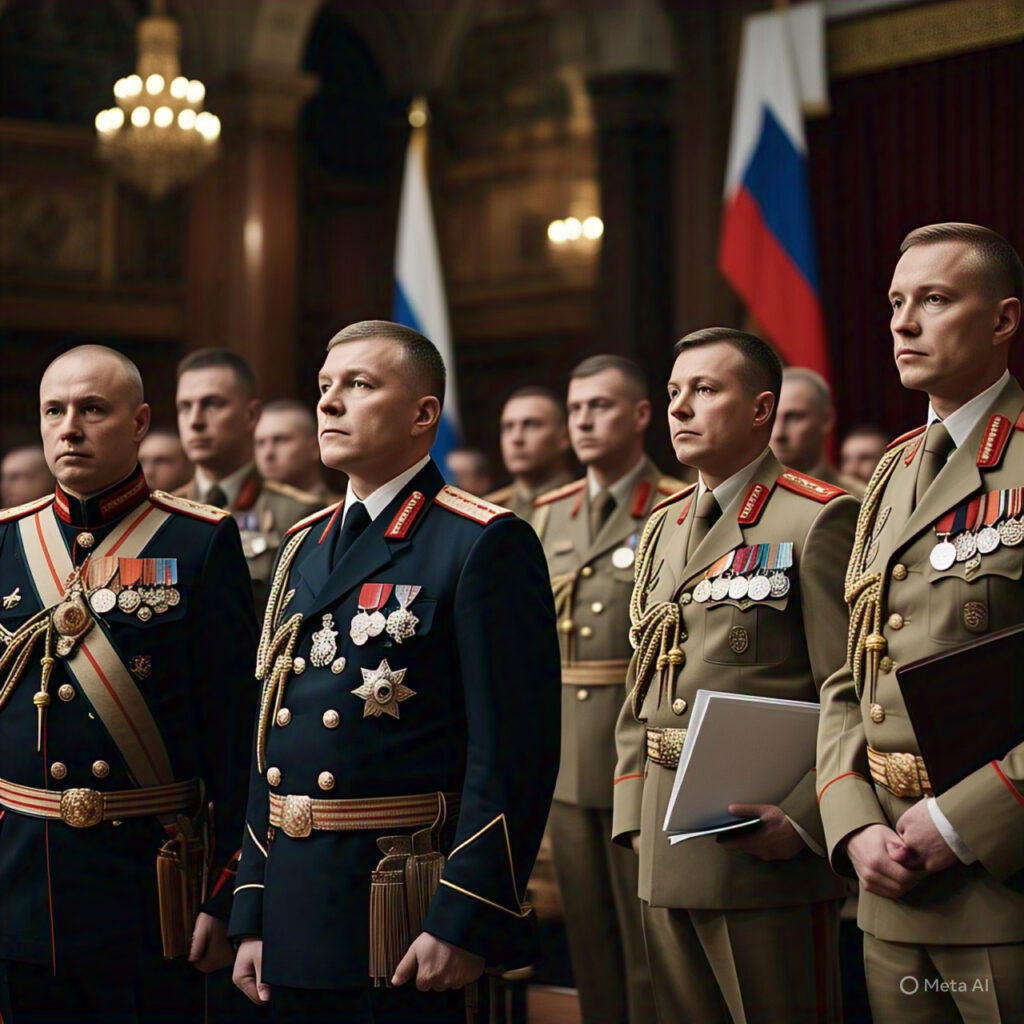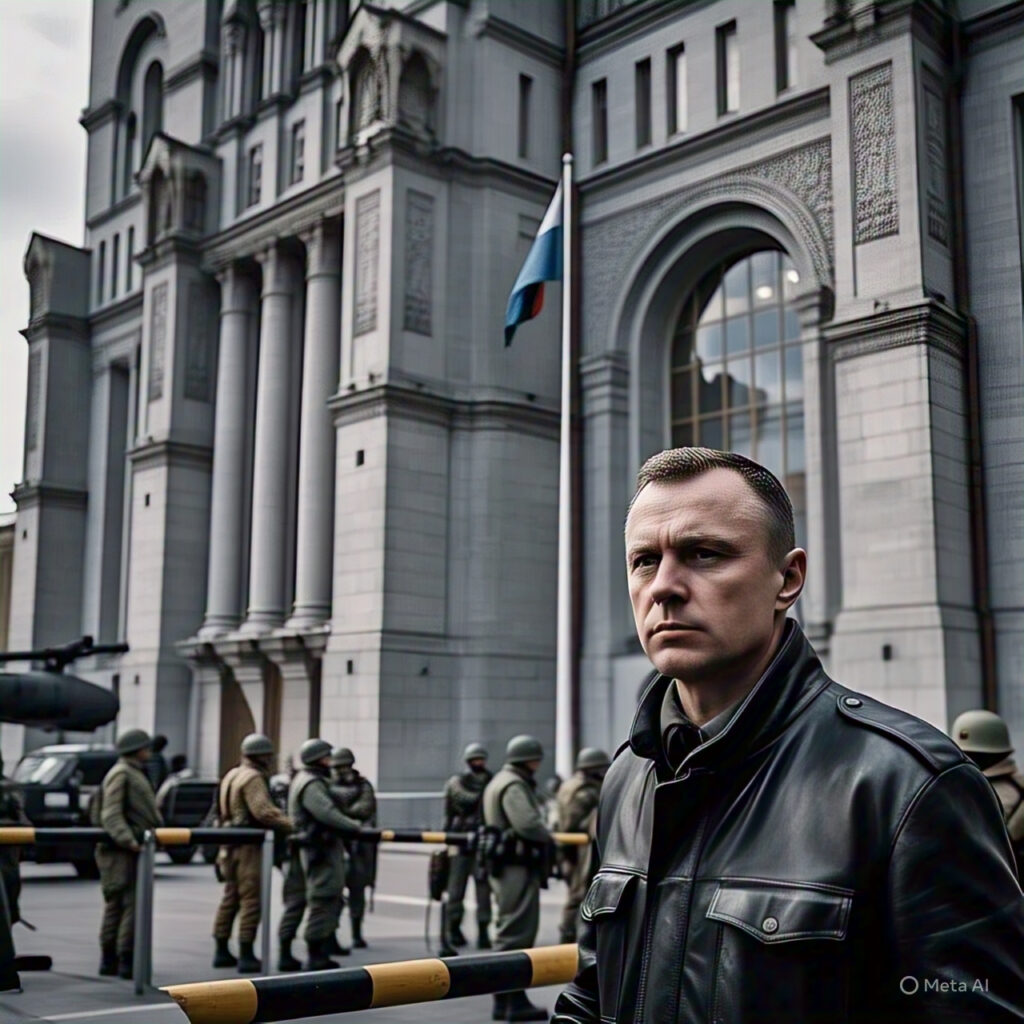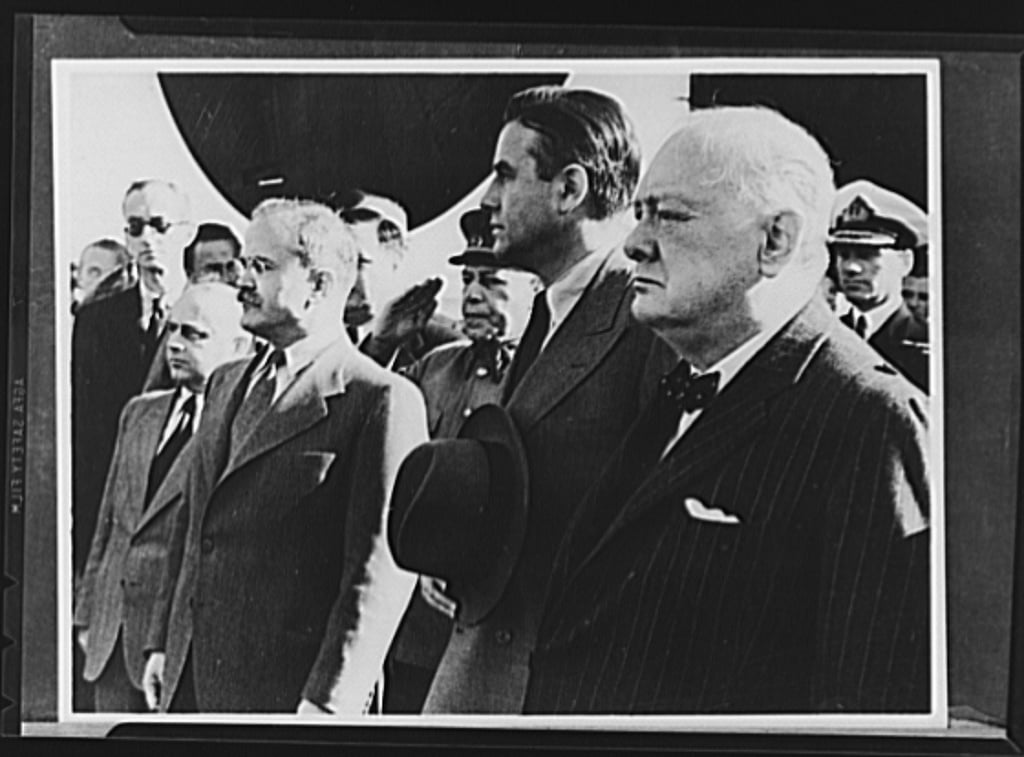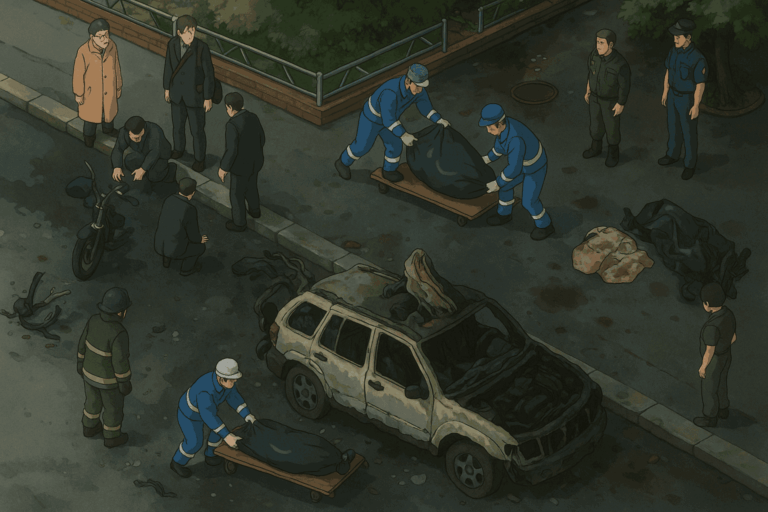Russian General Car Bombing: What Really Happened Near Moscow?💨
It Wasn’t Just Another Explosion…
You hear “car bomb” and think of warzones far from city lights—maybe Syria, Afghanistan, or some distant conflict you skim past in headlines. But this one? It happened near Moscow. In Russia’s own backyard. And the victim? A top military general.
What’s going on?
Why is this such a big deal?
And who’s really behind it?
Is this something you want to search the entire internet for, analyze it, and separate truth from spin?
Yeah, we thought so too.
That’s why, after analyzing everything across the internet and gathering real-world insights, the Bhussan.com team shares this friendly, helpful article. We’re here to unpack this explosive incident (literally and politically) in a way that’s easy to understand, with stories, emotion, facts, and yes—real talk.
Let’s dive in. 🕵️♂️
Who Was the General — and Why Was He Important?
This wasn’t some mid-level official. This guy had Putin’s ear.
The general killed in the car bombing was reportedly part of Russia’s strategic military planning unit, often involved in operations across Ukraine.
He’s been described as:
-
A loyalist to the Kremlin
-
A major force in Russia’s war efforts
-
A powerful figure inside the defense ministry
Why does that matter?
Well, imagine the U.S. losing a top Pentagon official in a car bomb outside D.C. That’s the level of shake-up we’re talking about.
This wasn’t just murder. It was a message. 📬

So… Who’s Being Blamed?
Before the smoke cleared, Russian state media and the Kremlin were pointing fingers: Ukraine did it.
They didn’t say “maybe,” they said it flat out. Ukraine, they claimed, planted the explosive with the help of Western intelligence.
But here’s the catch:
-
Ukraine denied involvement (as they usually do with covert ops).
-
Western intelligence hasn’t confirmed anything.
-
Russia hasn’t provided public evidence yet.
So the question remains…
Is this truth, or political theater? 🎭
Some experts argue that pinning the blame instantly, without transparent proof, might be a tactic to justify more aggression or cover up internal instability.
Geopolitical Shockwaves: Why This Bombing Changes the Game🌍
This isn’t “just” a tragedy. This could change everything geopolitically.
Think about it:
-
A high-level assassination means someone got past Russian security.
-
Moscow is on edge. If this can happen there, what’s next?
-
Russia might retaliate—hard.
And guess what happened on the very same day?
A Trump envoy reportedly met with Putin.
Coincidence? Maybe. But let’s be honest—these things rarely are.

Pros & Cons of the Kremlin’s Immediate Accusation
| Pros ✅ | Cons ❌ |
|---|---|
| Sends a strong internal message of control | No solid evidence has been made public |
| Frames Ukraine as a continued threat | It could backfire if proven false |
| Rallies domestic support behind Putin | May increase tension with Western allies |
Timeline of the Car Bombing: How It All Went Down⌛
Friday, early morning: The general reportedly left his residence in a black armored SUV. Surveillance footage captured a shadowy figure lurking nearby the previous night.
7:42 AM: Explosion rocks the street as the vehicle ignites in flames. Dashcam footage from a nearby car captured the immediate aftermath.
8:10 AM: Emergency services arrive. The general is declared dead at the scene.
10:00 AM: Russian state news confirms the identity. Speculation begins almost instantly.
By noon, the Kremlin blames Ukraine. Media across the world exploded with coverage.
Within 24 hours, Western governments urge restraint. Ukraine remains silent on any operational involvement.
The Psychology of Political Assassinations
Killing a high-ranking official in such a public way isn’t just about eliminating a person. It’s psychological warfare.
It says:
-
“We can reach you.”
-
“Your security isn’t enough.”
-
“No one is untouchable.”
Historically, these types of attacks have triggered major shifts:
-
Archduke Franz Ferdinand’s assassination led to World War I
-
Iranian generals targeted by U.S. drones sparked Middle East escalations
So, could this bombing lead to something bigger?
If history is any guide… yes.

Ukraine’s Official Response✈️
Ukraine’s government issued a brief, tight-lipped statement: “We do not comment on speculative acts of violence in enemy territory.”
Unofficially, sources close to Ukrainian intelligence suggested the possibility of “infighting” in Russian military circles.
Translation? They might be saying: “Wasn’t us. Maybe check your own house.”
But that doesn’t mean Ukraine didn’t benefit. A destabilized Russian chain of command can work in Kyiv’s favor.
What Happens Next? Putin’s Possible Moves
Here are some potential next steps Putin might take:
-
Crackdown: Increased domestic surveillance, arrests of dissidents, more censorship.
-
Retaliation: Escalation in Ukraine, maybe even targeting infrastructure.
-
Spin: Use the incident to justify further war actions and gain public sympathy.
Watch this space. History shows that violence like this doesn’t end quietly.
Final Thoughts: Why You Should Care🚑
You might not live in Moscow. You might not know the general. But this attack has ripple effects that could reach everyone.
Markets react to instability. War escalations affect energy prices, global politics, and even elections.
And perhaps most importantly?
When a government starts losing its grip on its own soil, the whole world starts watching.
Frequently Asked Questions (FAQs)
1. What happened to the Russian general in the car bombing?
He was killed in a targeted car bomb explosion near Moscow. The attack has sparked international speculation and political tension.
2. Who was the general?
A high-ranking official reportedly involved in strategic military planning, particularly around Ukraine.
3. Where exactly did the bombing take place?
Near Moscow, in a suburban area reportedly close to military or government facilities.
4. Was Ukraine responsible for the attack?
The Kremlin blames Ukraine, but no conclusive evidence has been made public.
5. Has Ukraine responded?
Yes, with a short official denial and some unofficial suggestions that internal Russian infighting may be the real cause.
6. Was anyone else hurt in the explosion?
So far, reports only confirm the general’s death, with no mention of additional casualties.
7. How did the Kremlin react?
Swiftly blamed Ukraine and hinted at Western involvement, signaling potential retaliation.
8. What’s the global reaction?
Cautious. Western governments are urging restraint, and intelligence agencies are watching closely.
9. Could this lead to more violence?
Yes. Political assassinations often trigger escalations, both militarily and politically.
10. What kind of car was targeted?
Reports say it was an armored black SUV, a common vehicle for high-ranking officials.
11. Is this part of a trend?
Assassinations and covert attacks have increased in and around Russia since the war began.
12. Could this have been an inside job?
Some intelligence analysts believe that’s a possibility, especially if the general had rivals within Russia.
13. Did any group claim responsibility?
No group has officially claimed responsibility.
14. What does this mean for Putin’s power?
It puts pressure on his security image and could either consolidate his grip or expose cracks in the system.
15. How has the Russian public responded?
Initial responses include fear, speculation, and a mix of nationalism and skepticism.
16. What are the risks of misattribution?
Blaming the wrong party could provoke unnecessary retaliation or lead to diplomatic fallout.
17. Has something like this happened before?
Yes—Russia has seen several political assassinations, both domestically and abroad.
18. What role does the media play?
State media in Russia is reinforcing the official narrative, while independent outlets question it.
19. Could this affect peace talks?
It may delay or derail any attempts at negotiations between Russia and Ukraine.
20. What did the Trump envoy’s meeting with Putin mean?
It’s unclear, but the timing raises questions about behind-the-scenes diplomacy or influence.
21. Is this an act of war?
Depends on the interpretation. Russia may treat it as such, even without full proof.
22. Will NATO get involved?
Only if member states are directly threatened or attacked.
23. Could this bombing have been prevented?
Unclear. If it was an inside job or involved sophisticated planning, prevention might’ve been difficult.
24. What’s next for Russia’s military leadership?
Possible reshuffles, tighter security, and increased paranoia.
25. How might Ukraine capitalize on this?
By using the confusion to strengthen their position on the battlefield or in diplomacy.
26. Is this the first car bombing in Russia recently?
No, but it’s among the highest-profile incidents.
27. How reliable are Russian state reports?
They often reflect the government’s narrative and may lack independent verification.
28. What should civilians in Russia expect?
Likely more security checks, surveillance, and restrictions.
29. Could this change global alliances?
It may shift how countries align or distance themselves from Russia.
30. Should we expect more attacks like this?
Possibly. If the source is external or internal opposition, this could be just the beginning.
Would you like me to now generate the FAQ section to complete the full article?

